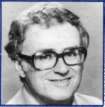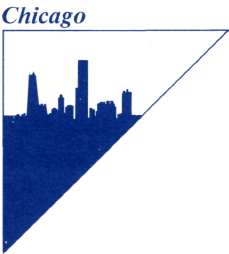 |
Home | Search | Browse | About IPO | Staff | Links |
 |
Home | Search | Browse | About IPO | Staff | Links |
 By ED McMANUS 
IN BLOOMINGDALE, a bedroom community in DuPage County west of Chicago, the school board needed more money. That is something only the voters can provide, and it's no secret that people are pinching their pennies these days. So the officials of District 13 decided to organize, and in classic political fashion, they identified 600 persons who appeared likely to support their proposal for a 60-cent property tax rate increase and went about the work of getting them to the polls. The results were dramatic: About 550 of them — 92 percent — voted in the November election, and the measure was approved by a vote of 622-502. That's what school districts are doing more and more these days — getting political — and, in November, at least, it seems to have paid off. Of 12 districts in the Chicago area that sought tax increases, five succeeded. A sixth district lost by only two votes out of more than 2,000 cast. Prior to November, only nine such referenda had passed out of more than 60 over the last three years. The Bloomingdale operation was impressive. "We have a $325,000 deficit, and we would have had to cut program and staff if we didn't do something," said board president Karen Gerovac. She noted that the last time the three-school district asked its residents for money, in 1978, the proposal lost. "We decided to target the parents," Gerovac said. "A volunteer organization was set up in all three schools. We put a lot of information in the newspaper, and we sent speakers out. We prepared a slide presentation to show what our needs were, and we held coffees all over town. All the parents were contacted by phone, to assess where they stood. Staff members and parent volunteers made the calls. Then we phoned those 600 people the night before the election, and we had poll watchers on election day. If people didn't show up, we called and reminded them in the afternoon. We also provided transportation to the polls and baby sitting. The whole thing was privately funded. We set up a 'Keep Quality Schools' committee to run the campaign. And it paid off." The board asked for a 43 percent increase in the educational fund tax rate, from $1.38 per $100 of assessed valuation to $1.98. "A lot of people told us we were crazy, but we did it," Gerovac said. "We asked for 60 cents, but we only anticipate using 20 to 30 cents in the coming year. But we wanted the authorization for more in the future. You can't keep going back year in and year out and asking for more, so we thought it was better to do it all at once." Some people feel it's a bad trend for school districts to get so involved in politics. Superintendents complain they are so busy rounding up votes that they don't have time to supervise educational programs. But what's the alternative? "It's a shame," Gerovac said. "We shouldn't have to do it. But I don't believe our district is becoming political." Ridgeland District 122 in Oak Lawn (southwest Cook County) was where the referendum lost by two votes — 1,109 for, 1,111 against. The board was seeking to raise the education fund rate from $1.32 to $1.81. They had gone to the voters last February but lost by some 300 votes. This time, obviously, the board did its homework but not enough. (A recount is being sought.) Supt. Robert Olcese said he devoted an enormous amount of time to the two referenda. "I'd say I've spent at least half my time on it since October of last year — that's 13 months," Olcese said. "We're spending more and more time in the political arena, and I'm not sure it is an arena we belong in. I'm concerned that it could compromise the quality of education. The more time we spend on politics — developing political techniques, fighting with other political organizations for scarce resources — the less time we will have to develop programs to benefit the children." Charles Edwards, superintendent of Villa Park Elementary District 45 in DuPage County, said basically all he did for the six weeks preceding the election was work for passage of a 65-cent increase. And it passed. But Edwards said he doesn't feel the way Olcese does. "My first obligation is to provide the best education for the kids," he said, "but you can't do that without money. so I've got to get the money. Increasingly, superintendents, board of education members, college presidents and so forth are finding ways of ingratiating themselves and their organizations to leaders of their communities. For instance, we make it a point to make our purchases in the local community as much as we can. If we want to buy a vehicle, we buy it from a local merchant. Then, when we need help, we can say, 'We've done favors for you Now we need a favor.' " Edwards said his district was highly organized. Because the state has cut back on school aid, he said, it has become crucial for districts to convince their residents to dig into their own pockets to support the schools. "The day after the election," Edwards said, "when our volunteers had the taste of victory, they were saying, 'Now we'll take on-the state!' " 44/January 1984/Illinois Issues
|